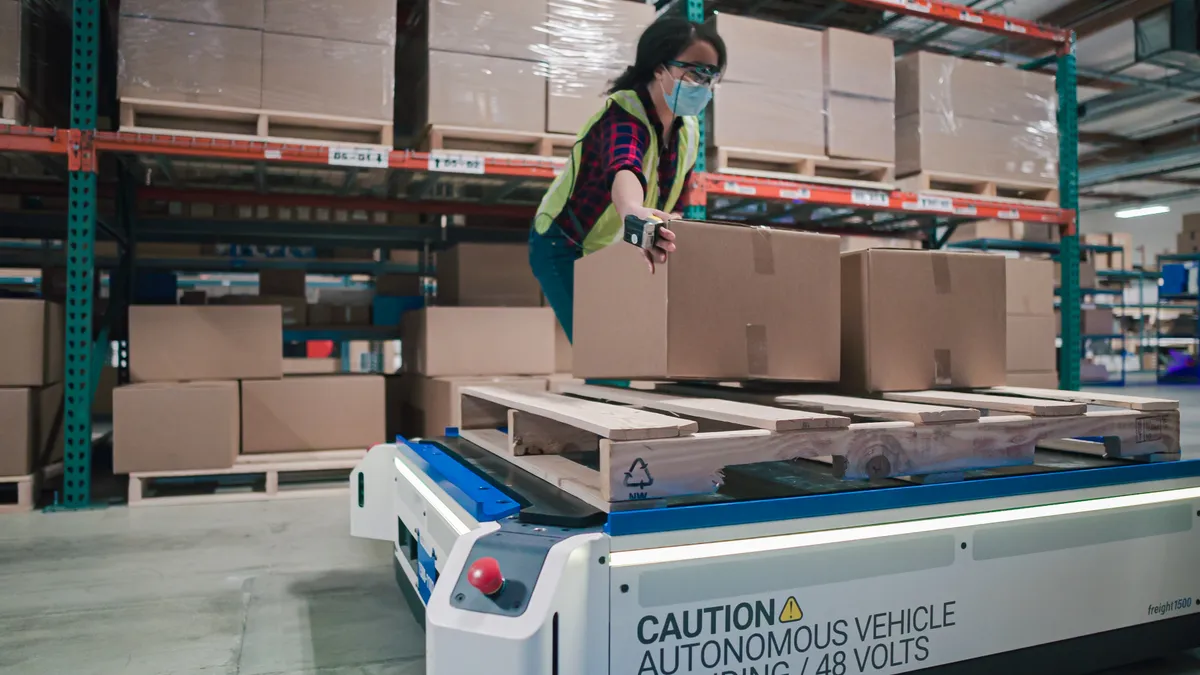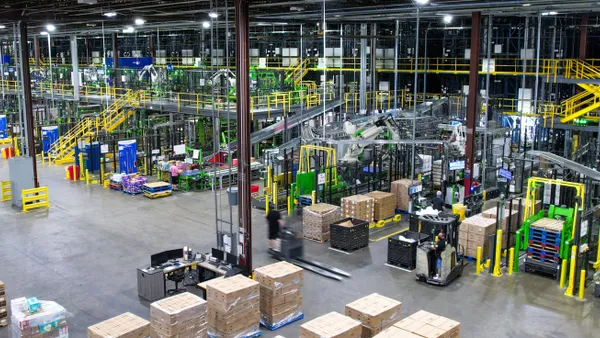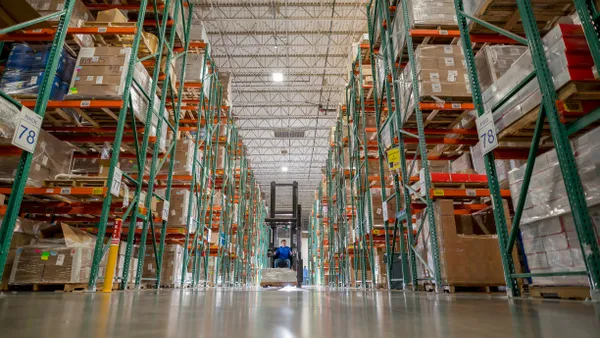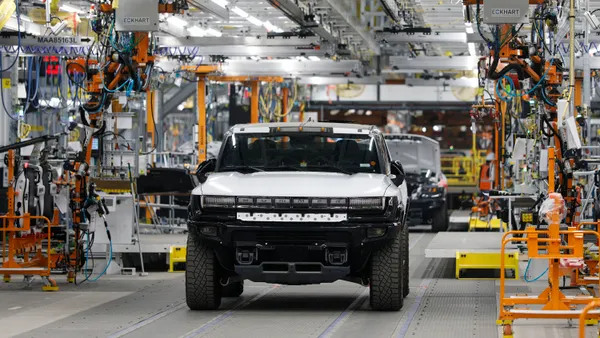Dive Brief:
- Industrial robot orders in North America hit a new record in 2021 with 39,708 units ordered, up 14% from the previous high in 2017, according to the Association for Advancing Automation (A3).
- Non-automotive industries, including those producing metals, plastics, food and semiconductors, fueled the jump in demand, A3 said in a news release.
- "More industries recognized that robotics could help reverse productivity declines and fill repetitive jobs human workers don't want," said Jeff Burnstein, president of A3, in a statement. "It is no longer a choice whether to deploy robots and automation. It's now an absolute imperative."
Growth in non-automotive sectors fuels 2021 robot order growth
Dive Insight:
A3's findings reaffirm what several companies have highlighted amid difficulties attracting and retaining enough frontline employees: Investments in automation are climbing in part to limit the sting of labor shortfalls and maximize the talents of current workers.
For engineered polymer and adhesive products maker Delphon, hiring Bay Area technicians and machine operators became more difficult during the pandemic. Renting robots made automation a less-costly undertaking, President and CEO Joe Montano said in the A3 release.
"By hiring robots to operate machines for pad printing and component cleaning, we were able to redeploy eight operators to other jobs and see a $70,000 return on investment in less than a year," Montano said.
Many companies are also tapping into automation to meet a pandemic-fueled demand spike, which has put greater operational strain on their warehouses. FedEx, for example, accelerated its robotics investments to better handle the variety of packages streaming through its sorting facilities.
Momentum isn't expected to slow in 2022. According to McKinsey, annual industrial robot installations are estimated to increase to 600,000 this year after already growing to 450,000 since 2015.
Widespread adoption of automated technology comes as the share of robot orders in the automotive industry dwindles. In Q4 2021, automotive-related customers purchased 39% of total orders, according to A3. The sector accounted for over 70% of robot sales in the early days of robotics, Burnstein said last year.
As a wider range of firms dive deeper into automation, they will need to navigate how much the new technologies will impact their current workforce. Change management is more important than the technology itself, Ted Dengel, FedEx Ground managing director of operations technology and innovation, said in a December interview.
"It's really about just being open and communicating very clearly out of the gates — 'This is what this machine is going to do, and here's how you're going to interface with it,'" Dengel said. "We do a lot of time training and making sure they're very comfortable with it before we start it. There's no mystery behind it."
This story was first published in our Operations Weekly newsletter. Sign up here.














